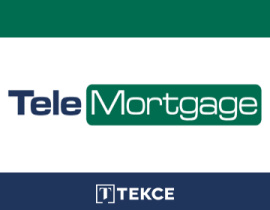- Home
- Blog
- Buying Guide
- How to Finance a Property in Dubai as a Foreigner
How to Finance a Property in Dubai as a Foreigner
Dubai’s property market attracts investors from around the world because it has strong legal protections, modern infrastructure, growing economic opportunities, dynamic lifestyle options, and diverse property types. In Dubai, property financing as a foreigner requires understanding financing rules, residency requirements, mortgage processes, developer payment plans, and documentation standards. Preparing carefully and knowing how to work with banks, lenders, and developers can save time, reduce risk, and make the process of getting a mortgage in Dubai for non-residents smoother.
Property Ownership Types and Mortgage Rules for Foreigners in Dubai
 Dubai mortgage requirements for foreigners are vastly different from residents. Foreigners in Dubai can buy two main types of property, and understanding the difference is important.
Dubai mortgage requirements for foreigners are vastly different from residents. Foreigners in Dubai can buy two main types of property, and understanding the difference is important.
- Freehold properties in Dubai give you full ownership of both the land and the building. You can sell, lease, or renovate freely, and banks accept them as mortgage collateral because ownership is permanent.
- Leasehold properties in Dubai grant rights for a fixed period, usually up to 99 years. They are cheaper at first, but banks rarely finance them for non-residents because the ownership ends eventually, which lowers their value as security.
Can foreigners get a mortgage in Dubai?
Residency status affects your ability to get a mortgage and the terms you receive. UAE residents who live and work locally are seen as lower risk by banks, so they often qualify for smaller down payments and lower interest rates. Mortgages in Dubai for non-residents have stricter rules because banks must verify income from abroad, which adds complexity and risk. You may still get a home loan in Dubai without a UAE visa, but expect higher down payments and sometimes higher interest rates than residents.
Loan-to-value (LTV) ratio in Dubai
When it comes to a Dubai mortgage for foreigners, requirements may change a lot. Loan-to-value (LTV) ratios limit how much you can borrow. Mortgage for completed properties in Dubai under AED 5 million, non-residents can borrow up to 75%, meaning you must pay at least 20–40% upfront. For properties over AED 5 million, the maximum drops to 55–60%, requiring a 40–45% mortgage down payment for Dubai non-residents. Off-plan property finance in Dubai has the strictest limits, with only 50% of the price available as a loan. These rules ensure you hold a significant equity stake, protecting both you and the lender from financial risk.
How Dubai’s Mortgage System Works for Non-Residents in Dubai
 Home loan interest rates in Dubai for expats are about 0.5% to 1% higher than local buyers. Home loan interest rates in Dubai for non-residents are often variable and linked to Dubai’s benchmark, the Emirates Interbank Offered Rate (EIBOR). Loan terms typically run up to 25 years or until you reach 65, whichever comes first. This means your monthly payments and total interest can change over time.
Home loan interest rates in Dubai for expats are about 0.5% to 1% higher than local buyers. Home loan interest rates in Dubai for non-residents are often variable and linked to Dubai’s benchmark, the Emirates Interbank Offered Rate (EIBOR). Loan terms typically run up to 25 years or until you reach 65, whichever comes first. This means your monthly payments and total interest can change over time.
What are the roles of local banks and international lenders in Dubai?
Local banks play the main role in financing property for foreigners because they have special programs for mortgages for non-residents in Dubai. They also have the infrastructure to handle cross-border income verification, legal documents, and risk assessments. International banks or smaller lenders rarely provide these products, so your options are limited. Because of this, focusing on banks that specialize in expat mortgages in Dubai increases your chances of approval and ensures smoother processing. It also protects you by making sure the lender understands your financial situation clearly.
Importance of Credit Score in Dubai
When considering real estate financing in Dubai for foreigners, you should know that your credit score and financial background strongly influence mortgage approval. Non-residents often need a score above 700 because banks cannot directly monitor overseas finances. Lenders also check your Debt-to-Income ratio and apply stress tests that simulate higher interest rates. This means you must show consistent financial discipline and low debt to pass. A strong credit history and stable finances increase the chance of approval and help you access better interest rates and loan terms.
Approval Process and Documents Needed for Dubai Mortgage
 Application for residential mortgage in Dubai for expats requires several essential documents to verify identity, income, and financial stability. You typically need:
Application for residential mortgage in Dubai for expats requires several essential documents to verify identity, income, and financial stability. You typically need:
- A valid passport (and visa page if applicable)
- Salary certificate and six months of pay slips for salaried individuals
- Six months of personal bank statements
- Proof of address and details of existing loans or liabilities
Self-employed applicants must also provide trade licenses, company ownership documents, personal and company bank statements, and tax returns. Lenders access foreign credit reports through secure channels like the AECB to confirm financial reliability. Collecting these documents early prevents delays and ensures your application meets all requirements.
Securing mortgage pre-approval for Dubai expats is now much easier with modern tools like TeleMortgage by TEKCE. This system allows you to start the mortgage process without leaving your home country. You can communicate in your language, submit documents online, and receive a response quickly, often within 24 hours. TeleMortgage also reduces administrative steps because TEKCE professionals handle paperwork and guide you through lender requirements.
Applications for a mortgage for foreigners in Dubai can be completed online or in person, but TeleMortgage makes the virtual option very efficient. Online submission for a home loan in Dubai for expats allows you to upload documents, track progress, and communicate with mortgage experts without traveling. In-person applications provide direct interaction but require visits to banks and government offices, which can be time-consuming.
Financing Off-Plan vs Completed Properties in Dubai
 Developers often offer structured payment plans for off-plan projects, which allow you to spread the cost over the construction period. These plans are usually interest-free and linked to project milestones. Common options include 50/50 and 60/40 plans, where half or more is paid before handover and the rest upon completion.
Developers often offer structured payment plans for off-plan projects, which allow you to spread the cost over the construction period. These plans are usually interest-free and linked to project milestones. Common options include 50/50 and 60/40 plans, where half or more is paid before handover and the rest upon completion.
Some developers provide 80/20 plans for investors with more cash or Post-Handover Payment Plans, such as 30/40/30, which lets you defer a portion of the payment for up to three years after the property starts generating income. Using these plans reduces the immediate cash burden and helps manage liquidity while waiting for construction to finish. For more detailed information on this topic, you should check out our guide “Is It Better to Buy a Property with Cash or Get a Mortgage?”.
Approval for Dubai mortgage for non-residents differs significantly between off-plan and completed properties. Banks prefer completed properties because they are tangible and can be valued immediately, allowing standard LTV ratios of 60%–75% for non-residents. Banks can grant pre-approval quickly once you select a property.
Financing options for off-plan properties in Dubai
Off-plan properties, even though they have greater investment potential, carry more risk because the project is not yet complete. Recent regulations allow up to 50% LTV during construction if the project is at least 40% complete and executed by an approved developer. Many investors use a blended approach: paying initial installments through developer plans and then taking a mortgage for the remaining LTV at handover. This strategy conserves cash, lowers interest costs during construction, and aligns with regulatory limits.









